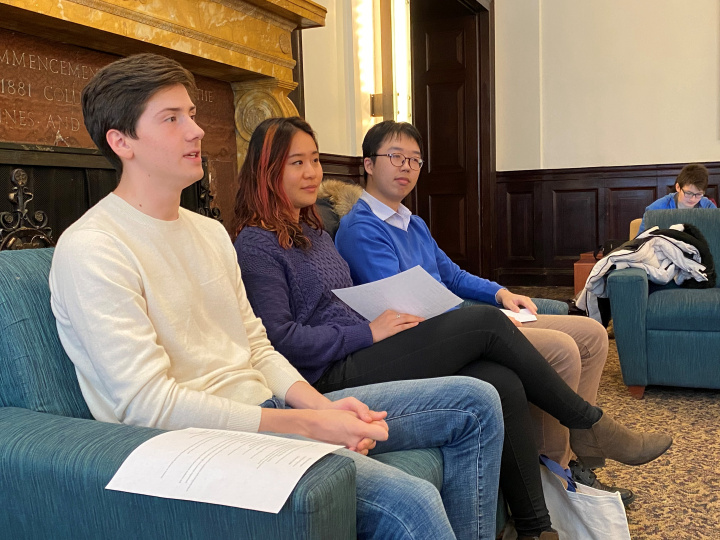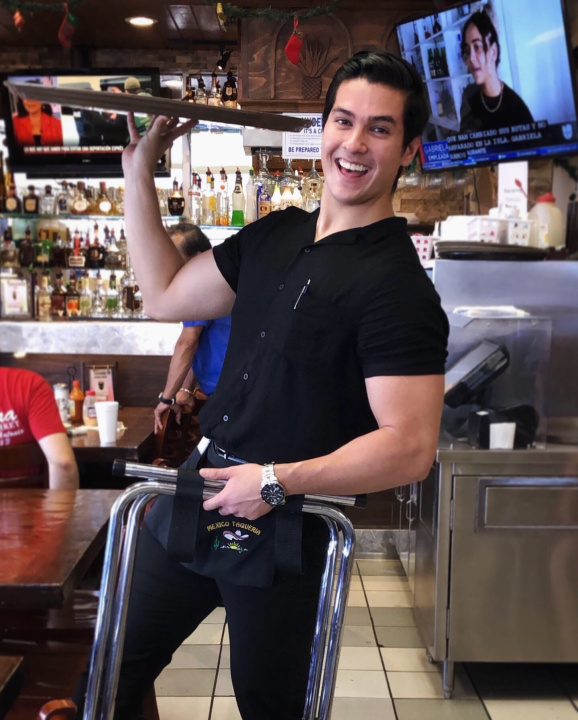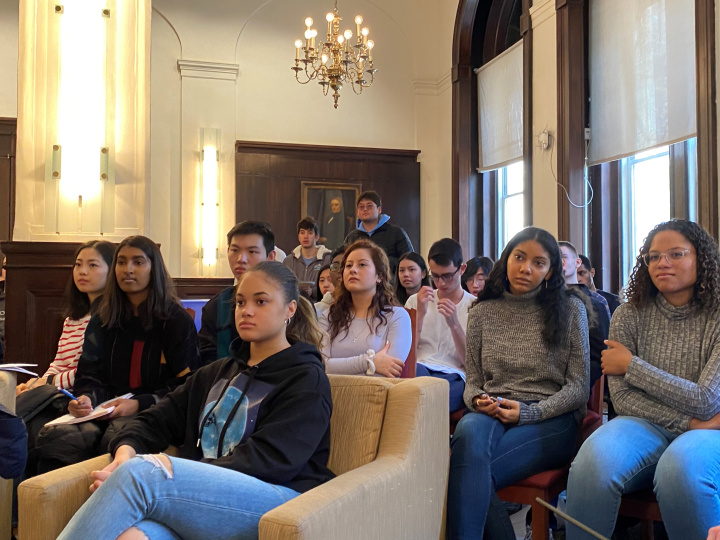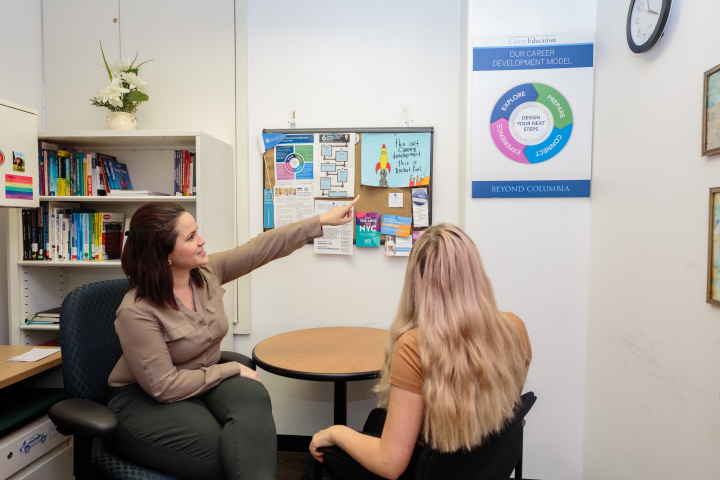Image


wondering how to start your internship search?
You’re not alone
On January 24th, over 95 students came together in John Jay Lounge to learn how to get started on your summer search process as a first-year student at Columbia. The student panel was led by Han Wen Zhang and joined by Renbo Tu and Carl Dobrovic. These students generously shared their insights into their first summer experiences. Several key themes emerged from their reflection.
Explore the Wide Range of Possibilities
There are many types of summer opportunities available to students that can advance your career exploration. These opportunities include CCE internship programs, study abroad programs, internships, volunteer work, externships, and international travel.
“In many ways, the first summer will redirect you… Take lessons from what your summer is or is not and use that to determine your second summer.” -Carl Dobrovic
It’s possible to plan ahead to take advantage of your summer experiences as well as to develop additional ones along the way based on your evolving interests. It’s a matter of being willing to keep an open mind and explore what’s around you.
Image


Be proactive and create your Own opportunity
During Han Wen’s study abroad program, she “reached out to nonprofits in Paris and found a mini-internship.” Whatever you do during your first summer – regardless of how formal or informal –it can develop your skills and interests. “Between my first summer [and] now, there [was] a lot of exploring. I am still exploring. No one…really knows what we want to do yet. These experiences add up and help us decide which direction to turn.”
Narrow your search through Conversations and Events
Figuring out what to do during your first summer can be overwhelming. As you begin your search, one helpful approach is to talk with students who have already participated in a program of interest. Another possibility is to schedule a career counseling appointment to discuss how your interests can translate into an experience or potential career path.
“Through conversations with my career counselor, I was able to narrow my job search to something that I would enjoy, but had no idea that I would have ended up in.” -Renbo Tu
Panelists recommended attending CCE and Alumni Center to network and learn about career options and opportunities. Having conversations with alumni or directly from professionals is essentially networking, a key internship search strategy. Han Wen mentioned that even if you don’t have something for the summer you can just talk to people and reach out, it doesn’t have to be a formal search.
Our events calendar can help you discover opportunities for networking or building relationships with industry professionals or alumni.

Learn how to Block and Balance Time
Some students start their summer search in the fall, some in the winter, and some in the spring. What matters most is that you block some specific time in your calendar on a regular basis to focus on your summer search. As Carl mentioned, this process includes developing your resume and having different ones for different experiences. CCE can help you with your summer search or materials in addition to learning more about recruitment timelines.
Transferable Skills and Knowledge Gained
Renbo shared that, “Overall, it’s helpful to reflect on your experiences and what you’ve learned from them. Your first summer experience can offer you the opportunity to develop transferable skills and knowledge and influence your academic and professional interests. Your summer experience is a time to develop relevant hard skills like research and soft skills like working with “people from different backgrounds.”
“Between my first summer and now, there is a lot of exploring. I am still exploring. No one of us really knows what we want to do yet. These experiences add up and help us decide which direction to turn.” — Han Wen
It can also be a time to learn about how to match your strengths to an employer’s needs in order to add value to their organization. Carl emphasized that reflecting can help you learn more about setting career goals and working backward to “…maybe find a major course of study that would approximate or open up enough doors to that kind of work.”
The Center for Career Education’s guide, Design Your Next Steps, can help you reflect, identify and communicate your transferable skills.
Want to Learn More?

Check out these resources on our website:
The last word from Our panelists:
At the end of the day, our panelists wanted students to remember that everything was going to turn out alright.
“[Try] to not worry too much about how this first summer experience will fit linearly into your academic/career goals. Keep an open mind and explore.” — Han Wen Zhang
“Have fun and explore during your first summer! It’s a great opportunity to know people from different fields and what it’s like to work in those areas.” — Renbo Tu